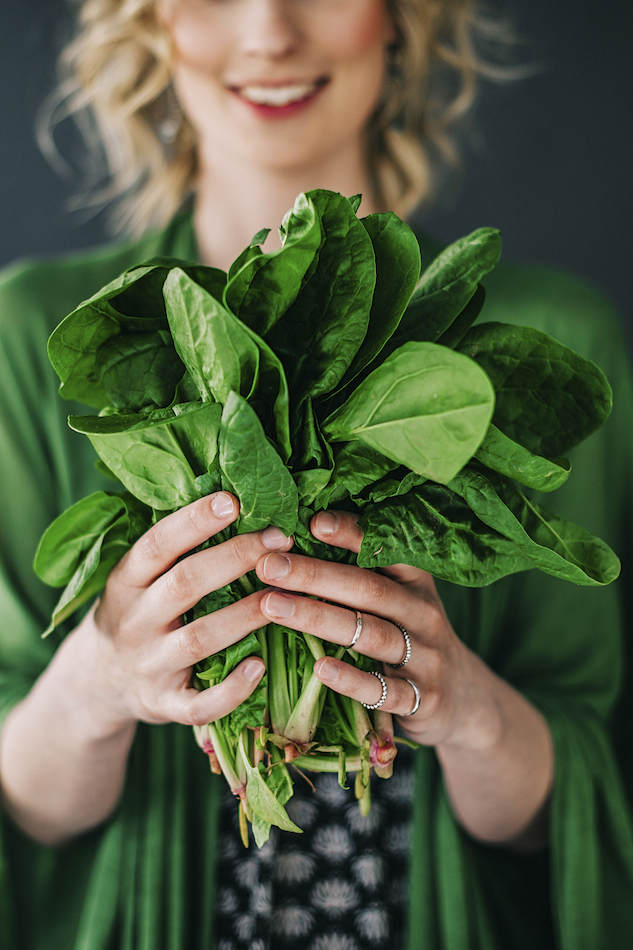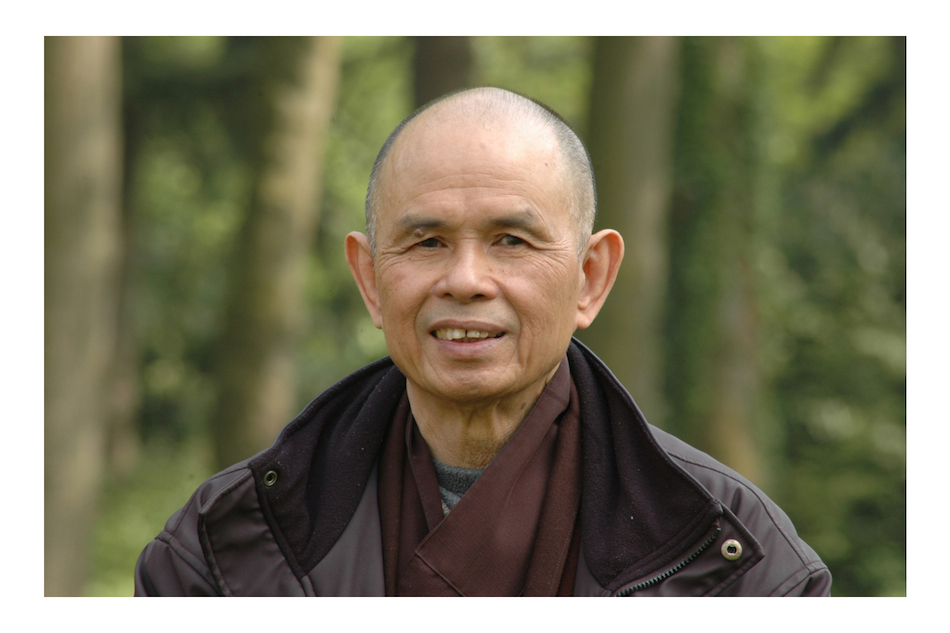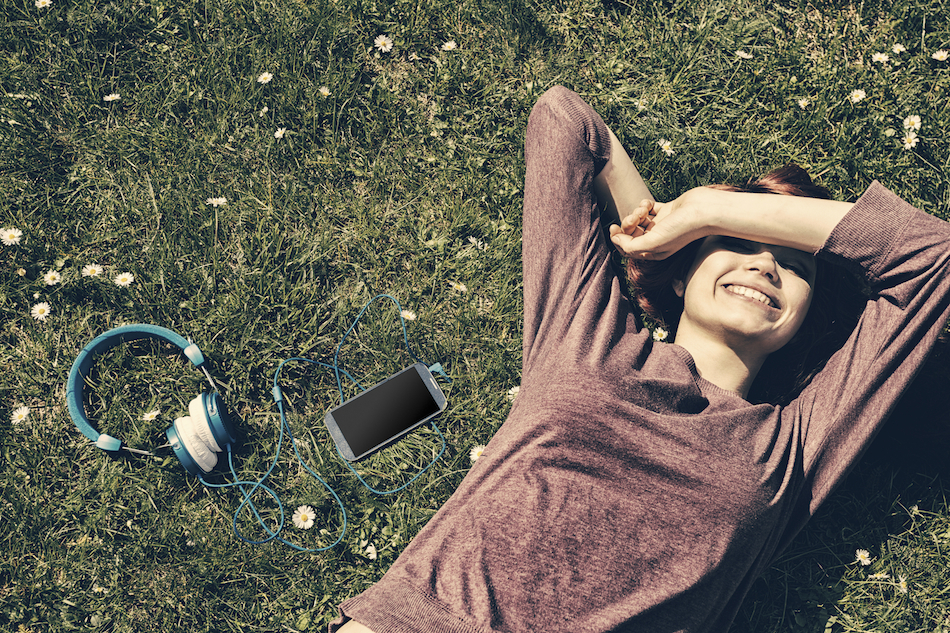If you think mindfulness is only something you can achieve at the top of a mountain, think again. The father of mindfulness, Thich Nhat Hanh, shares easy ways to incorporate mindfulness into your daily life.
Zen master, Thich Nhat Hanh is commonly credited as bringing the practice of mindfulness to the West. And he’s done a pretty good job – you can now get books on mindful diets, mindful travel and even mindful decorating. But the foundations of mindfulness are really about being more aware of the present moment in our every lives. To this end, Thich Nhat Hanh has just released five essential mindfulness mini-handbooks to provide inspiring foundations of mindful meditation including: How To Eat, How To Sit, How To Love, How To Walk, How to Relax. So, before you take that mindful feng shui course, get back to the basic from the man himself with a taste of some of the easiest and best ways to practice mindful behaviour in your everyday life.
-
Become aware of your breathing
Nowadays we try to do many things at once making it impossible to relax even when we have free time. Mindful breathing is a way to counter act this inability to let go. Whenever you find yourself in an overwhelming situation, look to your breathing. When we become aware of our breaths our breathing naturally clams.
When we become aware of our breaths our breathing naturally calms.
Breathing to avoid an argument is another strategy Hanh suggests. He suggests that, ‘conscious breathing helps us develop the ability to keep ourselves from saying or doing something we regret later.’
Try This Now:
Thich Nhat Hanh suggests saying a poem to yourself to help you become more deeply engaged in your breathing. The poem goes as follows; Breathing in, I know I am breathing in. Breathing out, I know I am breathing out.
MORE: 7 Breathing techniques for any emotional problem
2. Surround yourself with others
Relaxation and mindfulness are easier to obtain when you are surrounded by other people. Thich Nhat Hanh says that, ‘the collective energy can bring us back to ourselves’ and ‘generates the energy of compassion.’ It is important to relax with a group of people because the concentration and support that comes from within a group can help strengthen your relaxation.
Relaxation and mindfulness are easier to obtain when you are surrounded by other people.
We can’t force ourselves to relax because when we have to try to be mindful that is not authentic mindfulness. However, when we surround ourselves with other mindful individuals relaxation comes easier.
3. Make Mistakes
We’re human, we make mistakes. Hanh says in his book How To Love, ‘We cause others to suffer. We hurt our loved ones, and we feel regret. But without making mistakes, there is no way to learn.’ Learning from our mistakes is a way to, ‘transform garbage into flowers’.
Instead of giving a quick apology, take the time to discover the reason for your behavior.
Most times mistakes are not made on purpose, but rather due to our own personal faults. Even if we have good intentions our own personal inadequacies can cause others unhappiness. It is important to be mindful of our shortcomings to avoid upsetting others.
Hanh explains that this kind of mindfulness (creating happiness within you and around you) is a form of art that can be practiced while walking, eating, breathing, talking and working.
Try This Now:
Hanh suggests the next time a mistake is made, instead of giving a quick apology take the time to discover the root of your behavior.
4. Have a lazy day
Thich Nhat Hanh points out the importance of incorporating a day without any scheduled activities into your calendar. He says this day gives us, ‘a chance to reestablish the balance in ourselves, to train ourselves not to be afraid of doing nothing.’
He suggests reading a book, writing to friends and family or simply resting. It is up to you how you want to spend your time. As Thich Nhat Hanh says, ‘Your time is first of all for you to be – to be alive, to be peace.’
5. Hug
Thich Nhat Hanh invented a hugging meditation to help strengthen his connection with his friends in the West. According to his practice, you have to really hug the person you are holding, making him or her real in your arms.
Hugging should not be made a superficial act with just a pat on the back, but instead a practice of mindfulness. According to Hanh, the energy of your care and appreciation will penetrate into that person through the act of mindfully hugging each other.
Hugging should not be made a superficial act with just a pat on the back, but instead a practice of mindfulness.
He also says that, ‘hugging with mindfulness and concentration can bring reconciliation, healing, understanding, and much happiness.’ Whether you are giving a person a hug or drinking a glass of water, Hanh stresses the importance of being fully invested in that moment.
6. Embrace True Love
‘True love has the power to heal and transform any situation and bring deep meaning to our lives’, says Hanh in his book How To Love. He goes on to say that true love includes a feeling of deep joy that makes us feel alive and if we don’t feel this way than it’s not true love. He asks us, ‘Are we able to make the other person smile? Are we able to increase their confidence or enthusiasm? If not, how can we say we are in love?’
To love someone you have to have trust and confidence, but you first have to have trust, respect and confidence in yourself.
Trust and confidence are fundamental elements of a relationship. As Hanh puts it, ‘To love someone you have to have trust and confidence, but you first have to have trust, respect and confidence in yourself.’
Try This Now:
Hanh suggests that we practice listening deeply when a loved one is talking. When we allow the other person to speak freely we may be surprised at what we hear. This freedom of speech enables us to gain a deeper understanding of the other person. We can not be best friends with someone we do not understand. Hanh explains that, ‘someone who can understand our suffering is our best friend. We listen to each other. We are there for each other. Otherwise, the coming together of two bodies becomes routine and monotonous after a time.’ Think of each person as ‘a world to explore’.
7. Nourish your deepest desire
We all have hopes, dreams and aspirations for our lives. We want to be someone and do something. Hanh says, ‘If your motivated by compassion and love, your volition will give you the energy and direction to grow and become even more loving and compassionate. However, if your desire is to possess or to win at all costs, this kind of volition is toxic and will not help your love to grow.’
You may be wondering what exactly your deepest desire is. Hanh says that our deepest desire is our home and ‘our true home is inside, but it’s also in our loved ones around us.’ A loving relationship provides a true home for each other.
In Vietnamese the nickname for a person’s life partner is ‘my home’. For example, when a man asks, ‘Where is your wife?’ the husband responds, ‘My home is at the grocery store.’

handful of healthy greens
Hanh also stresses the importance of nourishing your body with food, the body’s first source of nourishment. He says, ‘If we eat with moderation, eating only the food we need and eating the foods that help our bodies to be strong and healthy, then we’re showing love and respect for our bodies and for the Earth.’
If we eat with moderation, eating only the food we need, then we’re showing love and respect for our bodies.
Try This Now:
A strong and positive desire can be developed though mindfulness. Hanh suggests putting your commitment in words with a statement such as, ‘I vow to develop understanding and compassion in me, so I can become an instrument of peace and love, to help society and the world.’
MORE: 5 Best raw food recipe books
8. Belly Breathing
Anytime you find yourself in distress Hanh says to, ‘sit quietly and return to your breathing and your body. Turn your attention away from whatever it is that you believe is the source of your suffering and instead focus on your breathing.’ Mindful breathing will help you through the stressful situation.
When we breathe deeply into our lower belly we are supplying our body with strength and support.
‘Bring your attention away from your head and down to your belly, so that you’re no longer thinking and imagining.’ Don’t forget to follow your breaths and remember that you have gotten through stressful situations before.
follow your breaths and remember that you have gotten through stressful situations before.
In Hanh’s book, How To Sit, he compares a stressful state of mind to the top of a tree being blown in a storm. ‘We have the feeling that the tree may be blown down at any moment. But if we look at the trunk of the tree, we see it’s very steady, and we know that the tree will stand strong.’ Hanh compares the strength of our bellies to the trunk of a tree. When we breathe deeply into our lower belly we are supplying our body with strength and support.
9. Location doesn’t matter
Although having a nice quiet space to sit and be mindful is ideal, know that you can practice mindfulness wherever you are. You can practice mindfully sitting while you’re on the train or the bus. Instead of thinking about all of your responsibilities and commitments give your mind a break from thinking and take time to release the built up tension in your body with simple breaths, in and out.
When you choose to sit and be mindful do so without waiting for a miracle of enlightenment or expectation.
When you choose to sit and be mindful do so without waiting for a miracle of enlightenment or expectation. If you sit in expectation you’re not living in the present and the present moment is, in the words of Hanh, ‘the whole of life.’

Thich Nhat Hanh is a world-renowned writer, poet, scholar and Zen Buddhist monk, who lives mostly in the monastic community he founded in France. The author of the New York Times bestseller Anger and the classic work The Miracle of Mindfulness, as well as numerous other books, he conducts public workshops and peace-making retreats throughout the world. He was nominated for the Nobel Peace Prize in 1967.
Thich Nhat Hanh’s series of books How To Eat, How To Sit, How To Love, How To Walk, How To Relax are all available on Amazon for £5 each.
Like this article? Sign up to our newsletter to get more articles like this delivered straight to your inbox.




























































